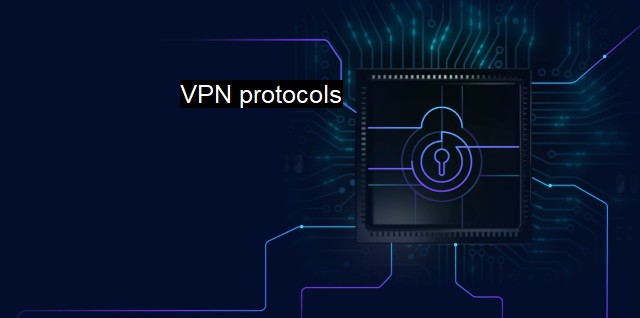What are VPN protocols?
The Increasing Importance of VPN Protocols for Internet Privacy and Security: A Comprehensive Guide
A VPN (Virtual Private Network) Protocol refers to the set of instructions a VPN uses to secure your online data transmission. A suitable metaphor would be the language or coded communication used by these systems to ensure the private data that's transferred retains its confidentiality. Given the intensifying number of cybercrimes, this level of security has never been more critical.Varying protocols will deliver different performance levels based on their build. Balancing between security level and speed is typically the challenge with VPN protocols. The understanding around this complex algorithm is essential when making a decision on the best antivirus and cyber security approach.
The various types of VPN protocols differ significantly in detail, but they all aim to achieve a standard purpose: to secure a given network. VPN protocols wrap your data in an additional protective layer, which keeps it safe from cyber threats during its journey across the internet.
Perhaps one of the best-known VPN protocols is OpenVPN. This open-source protocol employs SSL (Secure Sockets Layer) encryption and can negotiate connections using any port, making it extremely adaptable. Due to its strong encryption method, sizable community backing, and high reliability, OpenVPN is typically suggested for most VPN needs.
PPTP (Point to Point Tunneling Protocol) is one of the older VPN protocols. Developed by Microsoft, it's built into most operative systems; its age comes with some harsh criticism. PPTP provides only basic encryption, making it vulnerable to knowledgeable and determined hackers. PPTP's main advantage is its speed - it’s one of the fastest VPN protocols available, but the associated data security risk often outweighs the velocity advantage.
IKEv2 (Internet Key Exchange version 2) is a widely used protocol notorious for its capacity to consistently reconnect to the VPN server if the user's net connection drops. Developed by Microsoft and Cisco, this protocol ensures high stability, combined with potent 128-bit or 256-bit encryption, making it particularly beneficial in mobile device environment, given the sporadic drop in connection experienced when traveling or shifting between cellular towers.
Lastly, there's the L2TP/IPsec (Layer 2 Tunneling Protocol & the Internet Protocol Security). On their own, both L2TP and IPsec have limitations, but when paired together, they can provide robust safety measures. L2TP/IPsec combines to deliver a protocol that encapsulates the data twice offering a doubly protected VPN connection, making it extremely secure. this protocol tends to be slower due to this double encryption.
Increasing digital threats necessitate flawless encryption strategies to combat breach attempts, ensuring the privacy and security of users' personal information. Mainstream antiviruses come paired with VPN services, providing not only network-based but also system-based protection. This integration creates an all-encompassing defense wall around the system against malware, spyware, ransomware, and hackers seeking personal and financial data.
In the interconnected world of data ubiquity, cybersecurity has emerged as a primary concern for businesses and everyday internet users alike. using VPNs underpinned by reliable protocols provides a safe space online where users' data is robustly secured. The choice of VPN protocol will inescapably require a trade-off between speed and security. with a strong understanding of each protocol, users can make more informed decisions, safe in the understanding that their antivirus applications will integrate flawlessly with their chosen VPN protocol, creating an impervious network fortress. VPN protocols form an essential element of cybersecurity and should be valued to ensure continued privacy and security online.

VPN protocols FAQs
What are VPN protocols and why are they important for cybersecurity?
VPN protocols are a set of rules and procedures that ensure a secure and encrypted connection between a user and a VPN server. They are essential for cybersecurity as they protect data from interception, hacking, and other cyber threats.Which VPN protocol is the most secure?
There is no single answer to this question as each VPN protocol has its advantages and disadvantages. However, currently, OpenVPN and IKEv2 are considered among the most secure VPN protocols due to their advanced encryption methods and strong security features.What is the difference between VPN protocols and antivirus software?
VPN protocols and antivirus software are two completely different types of cybersecurity tools. VPN protocols secure your internet connection by encrypting data that travels between your device and the VPN server, while antivirus software protects your device from malware and other malicious software.How do I choose the best VPN protocol for my needs?
The best VPN protocol for your needs depends on a variety of factors, including the level of security you require, the device you are using, and the activities you intend to perform online. It's essential to research and compare different VPN protocols and choose one that offers the right balance between security, speed, and compatibility with your device.| | A | | | B | | | C | | | D | | | E | | | F | | | G | | | H | | | I | | | J | | | K | | | L | | | M | |
| | N | | | O | | | P | | | Q | | | R | | | S | | | T | | | U | | | V | | | W | | | X | | | Y | | | Z | |
| | 1 | | | 2 | | | 3 | | | 4 | | | 7 | | | 8 | | |||||||